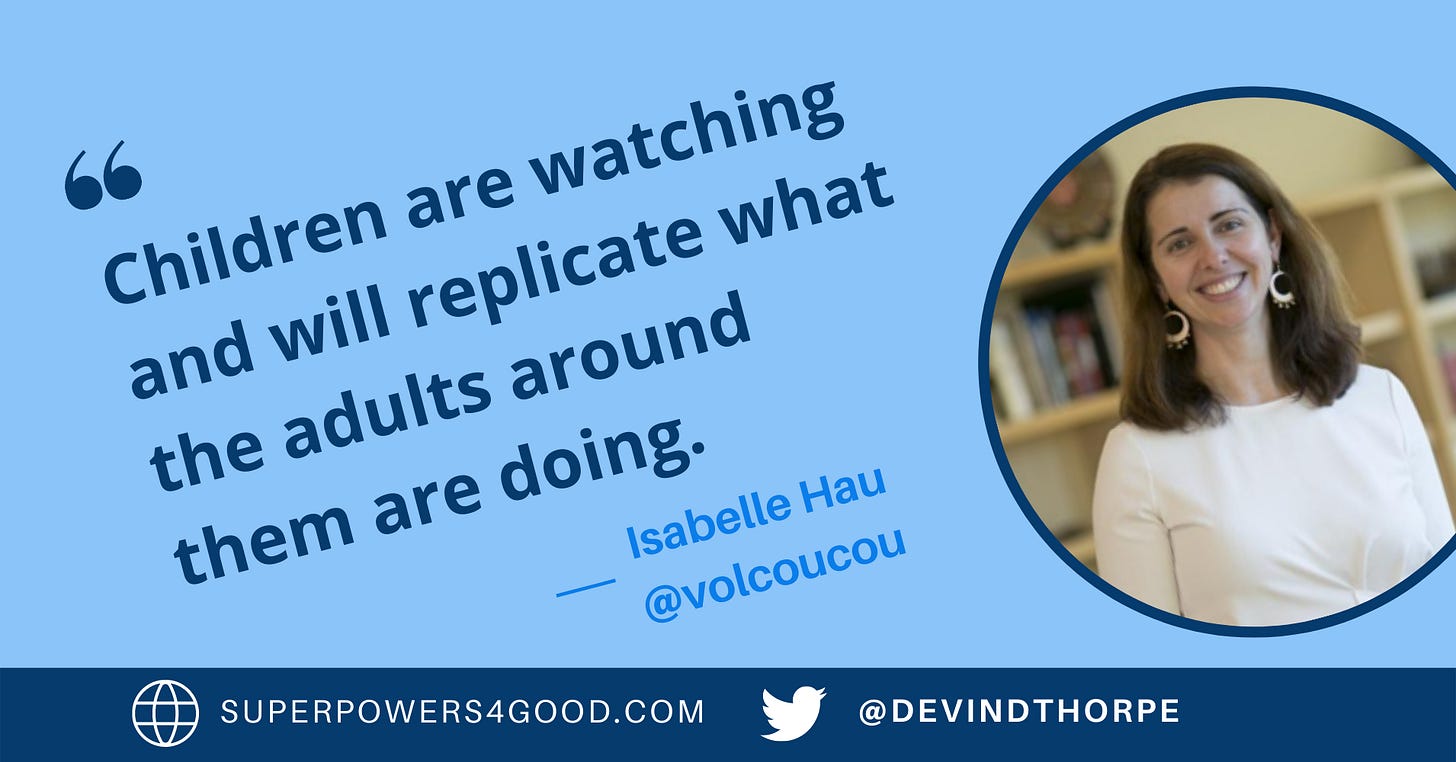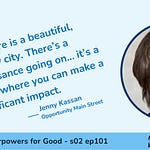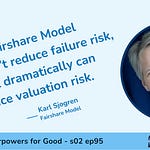Devin: What do you see as the superpower you’re using today?
Isabelle: I would say I’m so grateful for your book because it’s actually has helped quite crystallize. I read about all these other amazing impact leaders in your book and what they were featuring and realized that maybe I’ve also been evolving my own superpowers, if you like, adding to my own skill set and where I would like to go. I’m not sure I’m there yet, but where I would like to go is this concept of generosity. I think it’s such a beautiful, almost overarching—almost a mother of superpowers in many ways that connects with others in a way that encompasses humanity, but also interest and curiosity and some gratitude and many other aspects. So I just love this concept that was beautifully featured in your book.
Isabelle Hau, a former investment banker and investment partner at Omidyar Network who became a partner at Imaginable Futures, left to write a book that will, in part, answer a question that was gnawing at her. She explains:
There was a growing disconnect in my own mind. So on one end, I was reporting to my board and my leadership team about all this amazing work that I was doing and all the millions of lives that my work was was changing. And then, on the other hand, continually growing inequities—exploding inequities everywhere—and I could not go on with that disconnect. I had to figure out for myself why.
Still, she sees education as foundational for collective and individual prosperity and happiness. More than ever, she remains focused on early childhood education. “[Learning] doesn’t start when a child enters school in kindergarten or first grade. It starts when a child comes to life,” she says. “The greatest amount of growth in the brain is within the first—three to five years, but really, it’s in the first two to four years.”
Citing research she’s read since COVID began, she highlights two related problems. First, one researcher measured a significant decline “in the emotional connection between mom and baby since the beginning of the crisis.” Though the reason isn’t apparent, Isabelle is concerned it may be related to the combination of additional stress mothers are facing combined with reduced access to wider networks of friends for both mother and baby.
A second study shows that for the first time since researchers have measured IQ in babies, the results have dropped. Isabelle sees the possibility that the reduced social-emotional connection is also harming learning.
Isabelle’s research for her book on the future of learning should result in actionable insights that will improve education globally, with particular attention paid to removing the inequities that inspired her in the first place.
Applying her growing superpower of generosity is helping her devote the time and attention needed for this ambitious project.
How to Develop Generosity As a Superpower
Isabelle shared some thought-provoking ideas about how to build your generosity muscle.
First, she notes that as we progress in our careers, we gather a collection of experiences, not all of which were pleasant, but are potentially valuable to others. She suggests that developing a generous mindset about sharing learnings, including some of the difficult ones that could help others avoid painful mistakes, is a way of being helpful.
Second, she thinks it is vital for adults, including both parents and educators, to model generosity to kids. “Children are watching and will replicate what the adults around them are doing.”
Third, she notes that there are formal practices around kindness. We can all learn from reading books on kindness and generosity.
Finally, she reframes the phrase “my network” to appreciate the privilege in a new way:
For me, it's saying yes to those requests that I get quite often asking for advice or introductions, and realizing that those networks that I have developed over my career are not mine. I've had opportunities in my life to connect to those networks. But how can I leverage that privilege that I have had and expand it to others? Those are not my relationships. They are something that I've had the privilege to get into. So changing maybe the mindset on ownership and also the goals of—it's not about my individual success, it's really about the impact that I want to see in the world. But it's not about me, it's about the collective we if we are hoping to even make an indent at some of those broad impact goals.
By applying her four insights, you can develop a greater sense of generosity that will help you do more good. Perhaps it can even become your superpower.

















Share this post